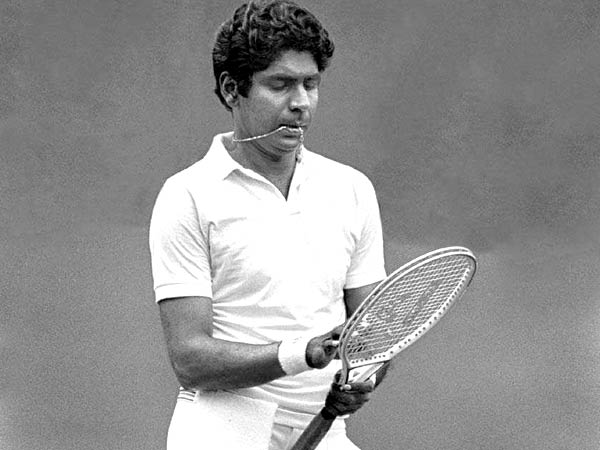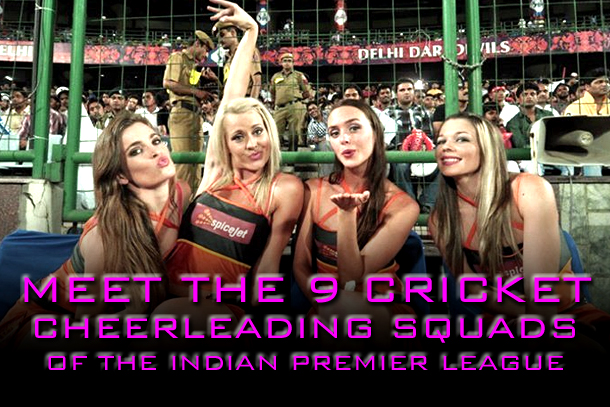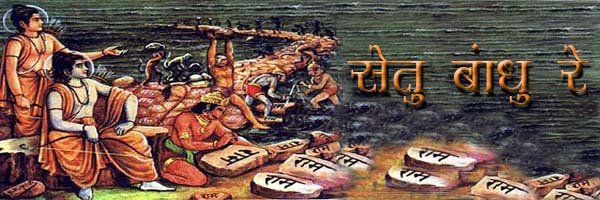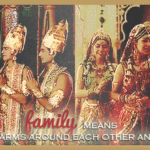A version of this Post was published on Andhra Cultural Portal on April 8, 2014
There is a famous saying that “Rome was not built in a day”.
Given our exhaustion and frustration with Rome Raj, however, our model should be Ram Raj—but the lesson still holds.
On this Sri Rama Navami, it seems this occasion, this year, is more appropriate for reflection rather than greetings. After 10 years of misrule, the Indian people are fed up, and are in the midst of one of the most important elections in recent history. While slogans and frequent proclamations of Ram Rajya are well and good, it is important that we all understand exactly what that means…and how in fact, it is built.
Our people (at all levels: mass up to intellectual) seem to think that periodic paroxysms of effort and emotion are all that are required. Activity is premised not on disciplined performance but flashes of inspiration based on mood and interest.
“Naaku interest leyyyyyydu!!!” [I’m not interested!!!”] is a common refrain from our middle class moms and dads, as though interest were somehow the only determinant for activity.
One day they will say in childish excitement “Yes sir! We will do it—we will show them!!!” Commitments are made, follow up is promised and then the next day, they will taper off into tamasic stupor or get distracted by Chicken 65 and Hakka Noodles. Then correspondences and responses cease, and people, yet again miss the woods for the trees, focusing on insignificant matters rather than the broader Kurukshetra.
Jugaad cannot be a philosophy for life. Not everything can be improvised at the last minute. “Delhi dur ast”—aka the Panipat strategy—is not a formula for success.

Vijay Amritraj was frequently considered one of the most talented tennis players of his time.
But flashes of brilliance cannot make up for consistent and committed effort, hence the dominance of Grand Slam Champions like Bjorn Borg, Jimmy Connors, and John McEnroe.
When it comes to missing golden opportunities—India ranks in the first echelon. We get distracted by the glitz and the glamour, rather than focusing on our main objective.
Celebrations and celebrities are for after victory, not before.
In all fairness to Vijay gaaru, his performance at Davis Cup and even his occasional victory over the Grand Slam Champions of the time definitely made all Indians proud (and gave a measure of athletic respect that is sorely, and justifiably, lacking now). But as much as we love him for his accomplishments, Grand Slams and Top 10 rankings are what ultimately measure Tennis Champions.
Similarly, as much as Indians may want to complacently revel in the surface-level popularity of yoga and Bollywood, they need to pay attention to the marketing hit-job that has been done to their brand (and has been since the days of Macaulay and Katherine Mayo).
Ultimately, as much as upper-middle class Indians like to talk about India as an IT or economic Superpower, the reality is it is neither. Pure numbers alone burst this balloon. Economically, India may be 4th largest in PPP, but in raw currency terms it is 9th, well behind not only China but also behind Brazil. This is important from the perspective of external buying power and overall economic power.
And as for Information Technology, being a glorified body shop or coding farm (sorry Infosys/Wipro) does not an IT superpower make. This determination is based upon finished products, i.e. End user applications and expensive software packages (like Windows or Photoshop). But how many Indian applications are world beaters? Can we name one? There may be an Indian CEO of a Fortune 500 Software Company, but there is no Fortune 500 CEO of an Indian Software Company.
The very real fact is, power determinations and respect are achieved through Comprehensive National Power… not through flattering words given to a chaprasi in chief (sidenote: what ground- breaking economic paper has the economist PM published?) by disinterested foreign leaders. Ram’s power came from not only the greatness of his Dharma and the wealth of Ayodhya, but also from the strength of his bow. Appointing corrupt morons to important defense positions is not the way to Ram Raj. To do this you don’t need a clueless anti-corruption brigade, but hard-minded strategic thinkers…aka Serious People.
Serious people do not make evaluations based on flattery or words of comfort. India and Indians have a myriad of problems facing them, their culture, and their civilization today. How to tackle this?
1. Vigilance
The brayings of our tamasic donkey public can usually be summed up in one line “who caaaaares! Let them bark! Ignore them”.
Yes, ignore the enemy even when he publicly states his aim, and even threatens to implement it in the halls of parliament (this man sits on the defense committee!!!!!), is openly feted by foreign enemies, and spends every waking minute focused on building strength, because you would rather stuff your face with hakka noodles or biryani–or anxiously hide behind corrupted “secular “labels than to pay attention and recognize the danger for what it really is.
It took Turkic invaders 200 years to break through all major resistance and finally set themselves up in the gangetic plains of India. What were our people doing before? One cannot wait until Tarain or Panipat to act. Once you know what he plans on doing, you must act before the enemy does, rather than passively react. So instead of braying “who cares! Let them bark!”, get off your rear and recognize the challenge that faces you instead of spending all your free time watching mindless movies and idiotic game shows.
2. Planning
Now that people are finally start paying attention, they have to plan.
Things cannot be done at the last minute. Jugaad is not a strategy. So take the time to read, reflect, understand, and plan. This means understanding what faces you, understanding what you can do, determining your long, medium, and short term objectives. Determining a strategy for each, and finally a method and detailed plan to implement, evaluate, and adjust. You cannot do this when the enemy is already at the gates.
Pedantic gyaani tweets and ahankari ego-stroking is not the path to victory. This is where free time and spending 15 minutes a day (at least) on something useful, comes in handy.
3. Consistent Effort
People think a single flash of genius is all that is necessary or one savior is all that is required at the last minute to save the day. But the reality is, God helps those who help themselves. Thus, for all us average, non-divine mortals, consistent effort is what is required to develop the requisite inner and outer strength to tackle the challenges that lay ahead.
That’s why I keep repeating the importance of 15 minutes a day. Plenty of you are reading, but how many of you reflect or even participate? That is the problem. Everybody wants a Shivaji, but only in the neighbor’s house. But the reality was, Shivaji had a host of people helping him and eventually succeeding him, from Samarth Ramdas to Tarabai.
An historic problem in India is the personality-based movement. This can no longer stand. Accidents happens, stray arrows hit their marks, and leaders come and go like the ocean waves. But who is there to pick up the flag if they fall, who is there to take the fallen king’s place in the midst of the battle?
So rather than simply praying like children for someone to help, do the hard work yourself to be a second-in command or a lieutenant. The most successful movements are not based around a single leader, but institutions, as was the case even with the Roman Empire and the British Empire (through the Company). The Khalsa survived long after the 10 Sikh gurus, just as the Maratha cause survived long after the Chhatrapati. But just like dirt cannot grease the gears, idiots cannot man institutions (no matter how perfect). So take the time needed to prepare and be a contributor, not just a cheerleading free-rider .
Rather than complacently remaining thoughtless tamasic rabble, our people must aspire to become disciplined, independent thinkers and contributors.
4. Implementation
After spending all this time thinking and planning… implement!!!
Whatever little thing you have time to do, whether it is correcting that Wikipedia article that you know is wrong (no matter how long it takes) or teaching Carnatic Music or running for municipal political seats, DO SOMETHING (intelligently) to protect and perpetuate our heritage and inheritance. Don’t just whine about how bad things are and go back to stuffing your face with sweets, do something about it!!
That is the great significance of the Vanara sena’s contribution to Ram Setu. Each vanara, by contributing a handful of stones, was able to construct the bridge to Lanka. Rama’s bridge stands to this day as testament to not only the Bhakti of the Vanaras, but as to how great structures can be built, and Ram Raj achieved, through small contributions by many individuals. So while you may think your little stone may be insignificant in the grand scheme of things, you may in fact be laying the foundation for the very great deeds for which you are hoping and praying.
And also, be sure that ambition does not blind you and others. Not everyone can be a Krishna Deva Raya, but one can still be a Timmarasu or Tenali Ramakrishna or a Nayaka. Thus, one must evaluate one’s own capabilities and strengths with respect to others in order to ascertain the optimal way one can contribute.
5. Accountability
No one is or can be above the law and no one man (or woman) is greater than the movement. Thus, if after fair evaluation over a reasonable period of time (i.e. several years, a term in office, etc.), a leader, no matter how beloved or feted, has not performed as required, or worse, is negligent or even complicit, then said leader too can step down and be replaced.
Ultimately, we must all remember that Rama was not able to rule in a simple flash of divine brilliance. He himself spent many years in the wilderness with only his Dharma to guide him. It took the consistent effort of Gurus like Vishwamitra to educate him, Fathers like Dasaratha to guide him, Mothers like Kausalya to acculturate him, Brothers like Bharata and Lakshmana to loyally protect him (and his interests), allies like Hanuman to serve him, Wives like Sita to care for him, and a Population like Ayodhya’s to be worthy of him.
So for all those clamoring for Rama Rajya, the question they should ask is “Are we worthy of it yet?”
Whether the answer is yes or no, people should take these lessons to heart—and plan/act more and talk less…
So don’t just idly read here or even thoughtlessly comment (ok…do comment…heh), but also plan and participate intelligently.
Jai Shri Ram!





![[Reprint Post] Dharmic Development](https://indicportal.org/wp-content/uploads/2015/09/oordhva-150x150.jpg)
![[Reprint Post] Problem of Indians: Unrepentant Stupidity](https://indicportal.org/wp-content/uploads/2015/08/martin_luther_king_jr_stupidity_5429-150x150.jpg)
